Foods You Should Never Store In The Fridge

When it comes to grocery shopping and storing items in your home, it may seem like a simple task. You probably have an idea of where everything should go and may have even watched videos on organizing for inspiration.
But what if we’ve actually been stashing certain foods in the wrong spot all these years? It turns out there are plenty of other foods that don’t necessarily need to be refrigerated, including some that should never be. Here’s a list of foods that don’t actually need to be refrigerated, despite the common misconception.
Potatoes
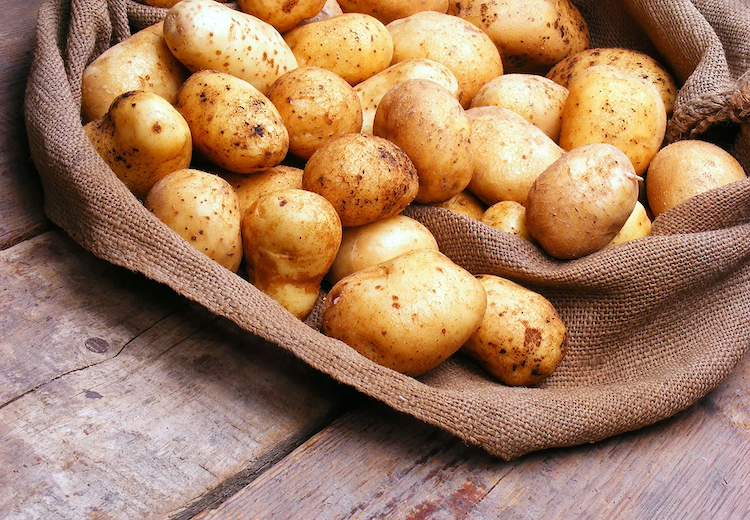
They will most likely rot if you store them in a moist place. So if you happen to have potatoes in your refrigerator – take them out quickly. Potatoes generally require storage in a dry, dark, and cool environment, which may seem somewhat akin to a refrigerator, but there’s a subtle distinction.
While a refrigerator can be dark when its door is closed, it tends to be cold and humid, rather than cool and dry. In fact, extended storage of potatoes in the refrigerator can lead to the conversion of their starch content into sugar. For brief moments, it won’t cause significant harm, but for prolonged periods, it’s best to opt for a well-ventilated storage area as the ideal choice.
Onions

Much like potatoes, onions need to be stored in a dark and cool place. The refrigerator is not the best storage with this in mind – whether it be whole onions or the pre-peeled and chopped options. But oftentimes, people keep them in refrigerators is a common issue.
Contrary to the practice at the store, it’s not advisable to store onions in the fridge at home. Refrigeration can lead to the onions becoming soft inside their skins, potentially developing mold. Instead, a practical alternative is to hang your onions in your pantry, and you can make use of pantyhose as a creative and effective storage solution.
Avocados

Avocados won’t ripen if you store them in the refrigerator. Frequently, the avocados procured from supermarkets aren’t quite ripe, but the magic of ripening unfolds solely at room temperature, with cold storage inadvertently halting this process. An alternative is to store your avocados on their sides or in the pantry. This helps them mature until they’re ready to eat.
Avocados undeniably rank among the most beloved fruits available today. The universal adoration of smashed avocado on toast, potentially crowned with a delicately poached egg, underscores the need for comprehensive knowledge of their proper storage.
Garlic
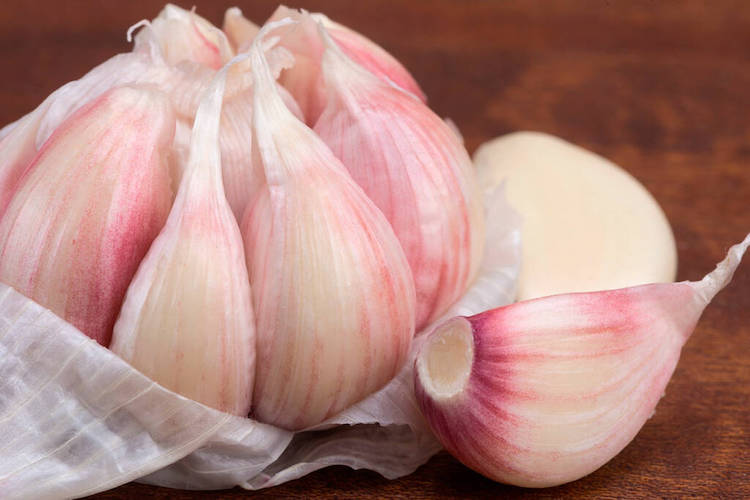
Fresh garlic doesn’t need to be kept cold to remain fresh. To ensure the longevity of your garlic’s freshness, it’s crucial to avoid storing it in your refrigerator. If you’re someone who takes the time to prepare fresh garlic, you certainly wouldn’t want your efforts to be in vain.
When exposed to a cold and dark environment, garlic tends to soften and even develop mold. Surprisingly, the best method to maintain its appearance, texture, and freshness is to store it at room temperature. This practice not only keeps your garlic in its prime condition but also helps in warding off vampires, all while minimizing food waste.
Bread

Bread will quickly turn stale if it’s kept too cold. While some keep it in the pantry and others in a bread bin, there are those who think that bread needs to be kept in the refrigerator to stop any mold from forming. They couldn’t be any more wrong about that.
The cold temperatures in the refrigerator actually change the consistency of the bread you put in there and will leave it feeling dry and hard. The best way to store your bread is actually to place it in a dark and dry container, such as a bread bin.
Coffee Beans

Coffee tastes the best when it’s kept out of the sun in an airtight container. While storing fresh coffee beans in the refrigerator might seem puzzling at first, it’s important to learn the proper storage of coffee to extract the finest flavor from your morning brew. Note that fresh coffee beans are also distinct from instant coffee, meaning they are treated differently.
Nevertheless, we want to emphasize that refrigerating your coffee beans is not advisable. This is because the moisture in the refrigerator can lead to the beans becoming stale, resulting in a bitter taste when you brew your coffee. It’s far more effective to store your beans in an airtight container and shield them from direct sunlight to preserve their freshness and flavor.
Tomatoes
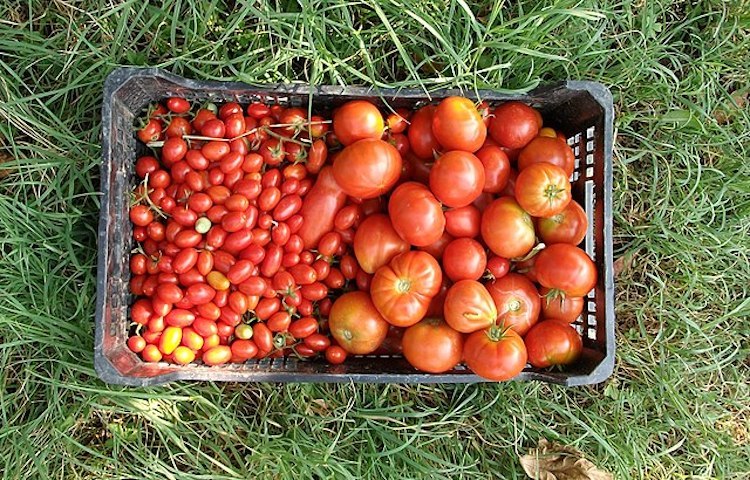
Tomatoes might struggle to ripen if kept in the refrigerator, but it’s actually common practice for people to stash their tomatoes in the fridge. No judgment if you have done it, as most of us did too at some point. But here’s a culinary secret: refrigerating tomatoes can actually be detrimental to their flavor and overall quality.
Cold and moisture in the fridge impede natural ripening, resulting in tomatoes that lack the delicious taste of ripe tomatoes left at room temperature. If you’re aiming for top-notch tomatoes, keep them in a place with lots of sunlight and away from other vegetables. This is important because some gases from vegetables can make the tomatoes ripen too soon and taste bad.
Honey
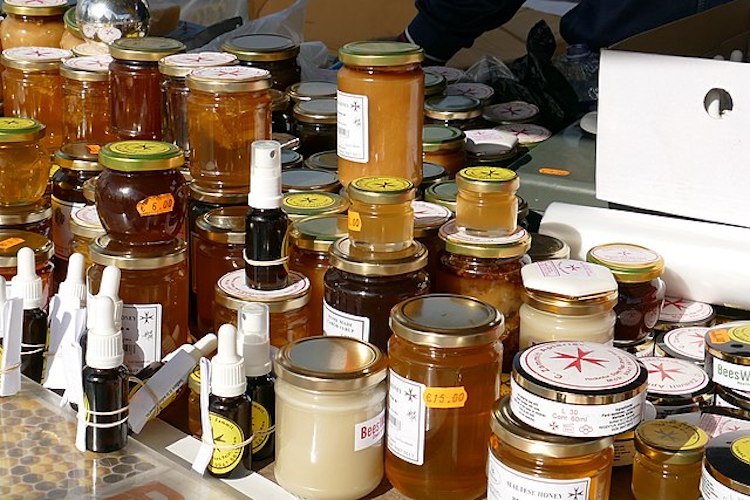
Honey will crystalize and harden if it is kept too cold, so it’s a mistake to refrigerate honey. Few people desire solid honey since it’s hardly suitable for spreading on toast or adding to beverages. Should you unintentionally relegate your honey to the refrigerator, you can remedy this by gently warming the jar in either warm water or a microwave.
While you may not consider yourself a honey connoisseur, it’s worth noting that honey boasts an abundance of natural preservatives. Consequently, it maintains its pristine appearance and delightful taste for an extended period before you’ll even think about bidding it farewell. As a result, there’s also no necessity to store it in the refrigerator.
Melons

If you didn’t know, melons don’t need to be stored in the refrigerator until they’re cut. Melons are renowned for being a rich source of antioxidants, making them a valuable addition to our diets and promoting good health. However, storing uncut melons in your refrigerator can inadvertently compromise their antioxidant content.
The cold and moist environment inside a fridge can lead to the degradation of antioxidants in melons. To preserve their nutritional value, it’s advisable to refrigerate melons once they’ve been cut and securely wrapped in food wrap. Yet, if your melons remain uncut, it’s best to store them at room temperature to retain their antioxidant goodness.
Donuts
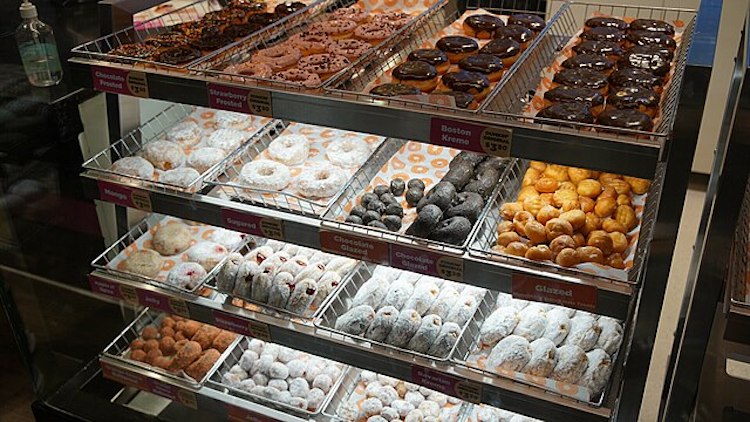
If kept in a refrigerator, your donuts will either go stale or extremely soggy and floppy. But if you love donuts, you probably already know this. That’s because the dough does not react well to the cold and damp conditions within the vessel. They will either become extremely stale to the point that even you, the donut-obsessed, probably won’t enjoy it.
To maintain the fluffiness and the texture of a donut, you shouldn’t keep it anywhere near moisture. Instead, you should keep them in an airtight container and away from direct sunlight to make sure they are constantly delicious.
Salami

Salami is unlike other meats and prefers room temperature conditions. Though undoubtedly a form of meat, it defies the conventional guidelines for storing meat in refrigeration. Its distinction lies in its classification as a preserved meat, thriving when it’s exposed to oxygen.
Depriving salami of oxygen can result in excessive dryness and the loss of its characteristic flavor and texture. To maintain its exceptional qualities, the optimal storage for salami is at room temperature, such as in a pantry or kitchen cupboard, where it generally retains its quality for about six weeks.
Matured Cheese
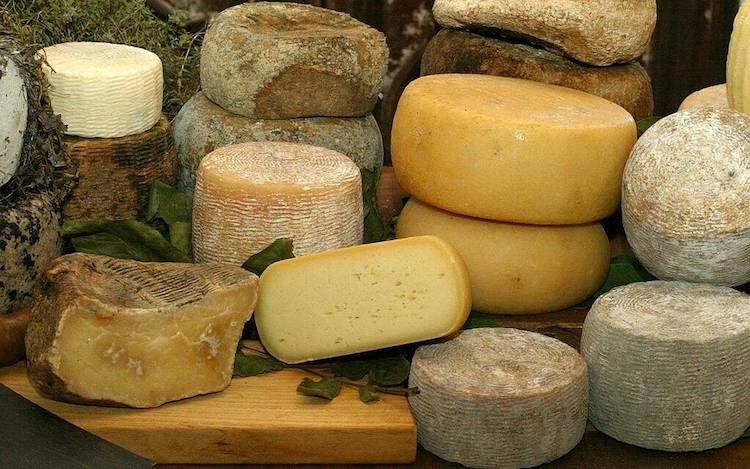
When most people think of cheese, they often associate it with milk and assume it belongs in the fridge, but matured cheese will likely harden if they are kept too cold. Matured cheese may not be as thrilling as their younger counterparts, but let’s not get too cheesy here.
Aged cheeses, owing to their curing process, don’t require refrigeration. Storing them in the fridge can actually dehydrate and harden them, potentially compromising the years they’ve spent maturing. Instead, to savor their perfect level of cheesiness, it’s best to store matured cheeses in a cool, dark environment.
Vinegar And Vinaigrettes

Vinegar and vinaigrettes need to be stored differently to thrive. Vinegar is really acidic, which helps keep it fresh without needing extra steps – so you don’t have to keep it in the fridge. But if you make a sauce called vinaigrette, which has fresh veggies and herbs, you should keep it cold to stop it from going bad.
The distinction arises from the composition: vinegar primarily consists of acetic acid, which inhibits spoilage, whereas vinaigrettes contain ingredients prone to deterioration. In summary, vinegar thrives in a cool, dark storage space, while vinaigrettes necessitate the refrigerator’s cold embrace.
Basil
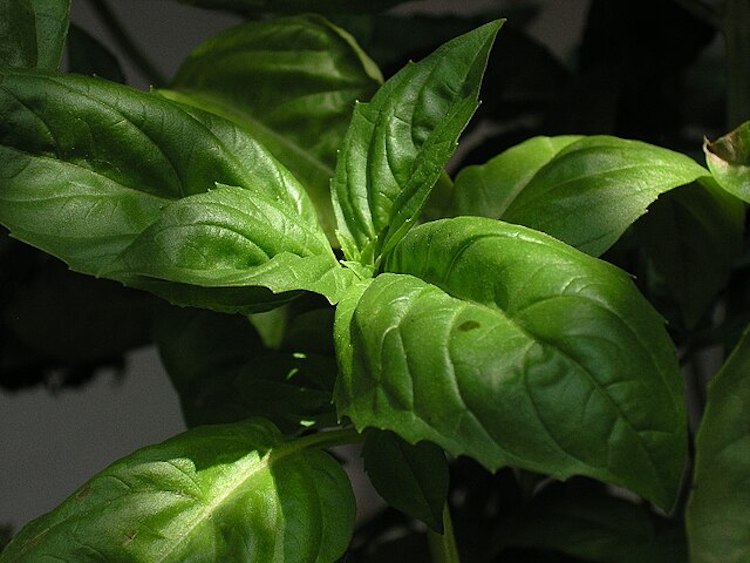
Basil is known to absorb moisture and smells in the refrigerator. It happens to be an incredibly porous herb that tends to wither swiftly when subjected to the cold, all the while absorbing the aromas of various foods sharing its fridge space.
Most culinary enthusiasts prefer their basil leafy and fragrant, not wilted and smelling like last night’s dinner, so the best practice is to keep it in a glass of water at room temperature instead.
Ketchup

Only certain types of ketchup need to be refrigerated after opening. As you may be aware, tomato ketchup is crafted from the quintessential tomato. Interestingly, recent findings suggest that tomatoes should not be stored in the refrigerator, echoing the fate of other foods not meant for chilling, even when they have been transformed into this delectable condiment.
The rationale behind refraining from refrigeration lies in the ketchup’s composition, which boasts a rich array of preservatives. These additives not only grant it an extended shelf life but also maintain its freshness, making refrigeration unnecessary. Nonetheless, it’s essential to note that if you opt for a low-fat or low-sugar variation of ketchup, refrigeration might be advised.
Tuna

Tuna will be perfectly fine kept in an unopened can, so there is no need to refrigerate it then. Canning is a method of food preservation that ensures the long-lasting freshness of foods, often extending their shelf life for several years. Interestingly, refrigeration also falls under the preservation umbrella, so there’s no need to fret about overdoing it.
To keep your canned tuna in peak condition, simply store it in a cool, dark location, allowing the can to work its magic. When you’re ready to savor some of that canned goodness, remove the leftover tuna from the can, drain any excess liquid, transfer it to an airtight container, and pop that container into the refrigerator for safekeeping.
Peanut Butter

Peanut butter will start to go hard and dry in the fridge. It’s undeniably a delectable treat – whether you’re spreading it on warm toast, pairing it with luscious jelly, or incorporating it into scrumptious cookies – so it’s crucial to store your peanut butter correctly to maintain its quality.
If you aim to preserve the rich flavor and creamy texture of your peanut butter, steer clear of the refrigerator. Storing it in a cold and humid environment can lead to undesirable outcomes, such as dryness, hardness, and even crystallization. These are certainly not the characteristics you desire from this delectable spread, so opt for a cool, dry storage spot to ensure its continued delightfulness.
Pickles
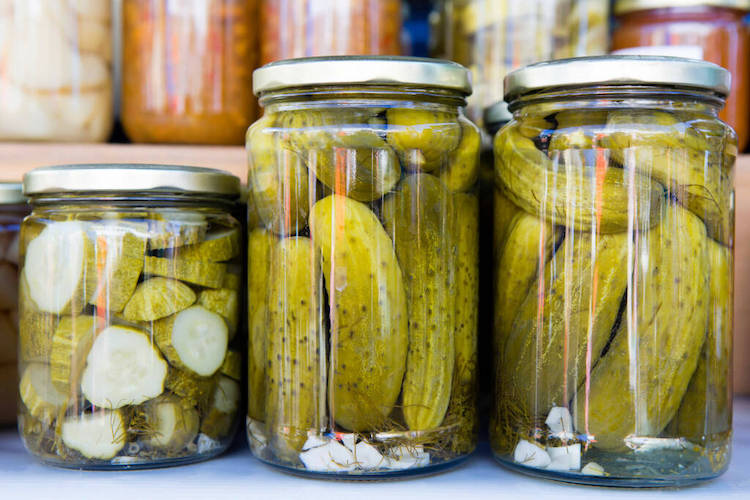
Nothing bad will happen, but pickles don’t need to be refrigerated. There is a conventional belief that you should, but this is not necessarily the best approach. Since pickles are, well, pickled, there’s no need to introduce additional preservation methods.
The pickling process itself is sufficient to maintain their freshness and flavor for an extended period, making refrigeration unnecessary. Unless you have a particular preference for ice-cold pickles, storing them in your fridge might not be the most efficient use of your refrigerator space. While refrigeration won’t necessarily harm them, it could mean wasting valuable real estate inside your fridge.
Salad Dressing

Salad dressings can be stored in the cupboard, depending on the ingredients. If your dressing primarily consists of vinegar or oil, it’s worth noting that you can store it outside of the refrigerator.
However, the situation changes if you have a dressing based on mayonnaise or yogurt, as these ingredients indeed need to be kept in the fridge. To ensure proper storage, always remember to read the label on your dressing before making your choice.
Citrus Fruits

Citrus fruits, renowned for their sweetness and health benefits, can lose some nutritional value if they’re kept too cold, so it’s important to consider their location. Have you ever wondered whether you should pluck them from the refrigerated section or seek them elsewhere in the store? The answer lies in the latter choice.
Instead of altering the established norms, align with your local supermarket’s practice because refrigerating citrus fruits can inadvertently prolong their ripening process. Additionally, this chilly environment can strip away vital nutrients from their cell membranes, potentially depriving us of some of their nutritional advantages.
Cucumber
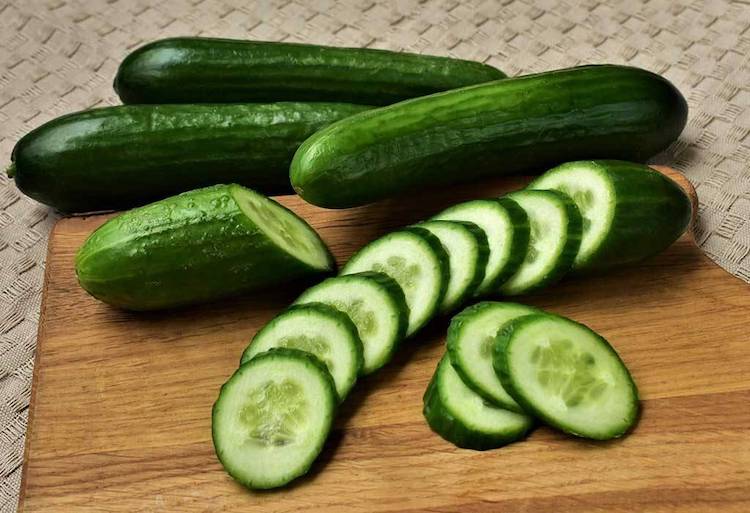
Many of us habitually place vegetables and salad items in the refrigerator, assuming that it will prolong their freshness. However, cucumbers can get torn and absorb harmful bacteria in the fridge according to recent research conducted at the University of California.
The study shows that if cucumbers get too cold in the fridge, their skin can break and let in bacteria. This can make the cucumber go bad from the inside. To maintain the cucumber’s freshness, it’s recommended to store it in a room-temperature environment, shielded from direct sunlight. This practice should be followed until you are ready to cut into the cucumber.
Banana
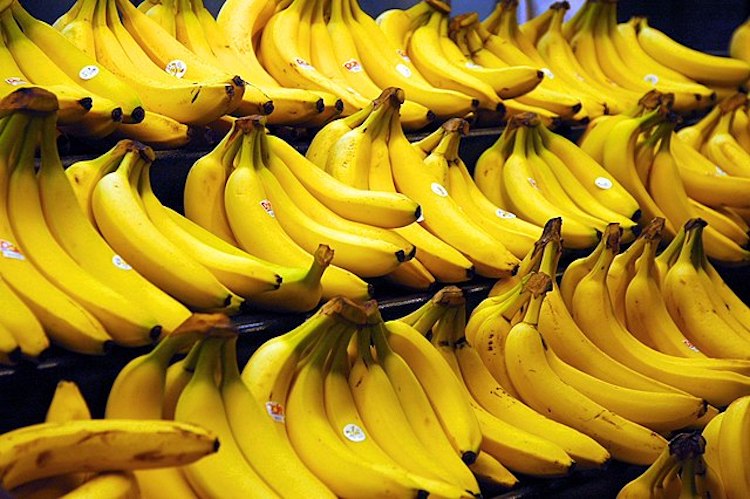
Bananas won’t necessarily keep their vital nutrients if stored incorrectly. The cold temperatures inside the refrigerator can indeed slow down the ripening process of bananas, but this can also hinder the release of essential nutrients.
Consequently, it is actually healthier to consume bananas that have been stored on the countertop or in a fruit bowl. Additionally, it is advisable to purchase a variety of ripe and unripe bananas simultaneously to ensure a continuous supply of this versatile fruit.
Carrots

When kept in the refrigerator, carrots will actually rot a lot faster. Consider that carrots naturally grow underground, sheltered from both cold temperatures and direct sunlight. Comparatively, the refrigerator’s chilly environment is far colder, which is our first indication.
Carrots, upon harvest, don’t require additional darkness or moisture to maintain their freshness. Excessive moisture exposure can actually lead to rot and mold growth in these orange vegetables.
Chocolate

Many individuals aim to prevent their chocolate from melting, but chocolate will actually lose some of its taste due to conditions in the fridge. This transformation isn’t solely due to temperature; it’s also influenced by changes in texture and taste.
To avoid this undesirable outcome, consider locating a cool, dark spot for storage, such as a cupboard or pantry. Your cravings for sweet treats will probably be more satisfied in the long run.
Cereal

The cereal will stay crisp and fresh in an airtight container. It’s worth noting that refrigerating your cereal is unnecessary. When you examine your cereal before pouring milk, you’ll notice that the flakes and delightful crunchiness are intentionally dry. Cereal manufacturers achieve this texture through a process known as toasting or drying.
This method serves as a natural preservation technique, allowing your cereal to maintain its freshness and crispness for extended periods when stored in your pantry. To prevent any moisture infiltration, consider storing your cereal in an airtight container if possible.
Flour
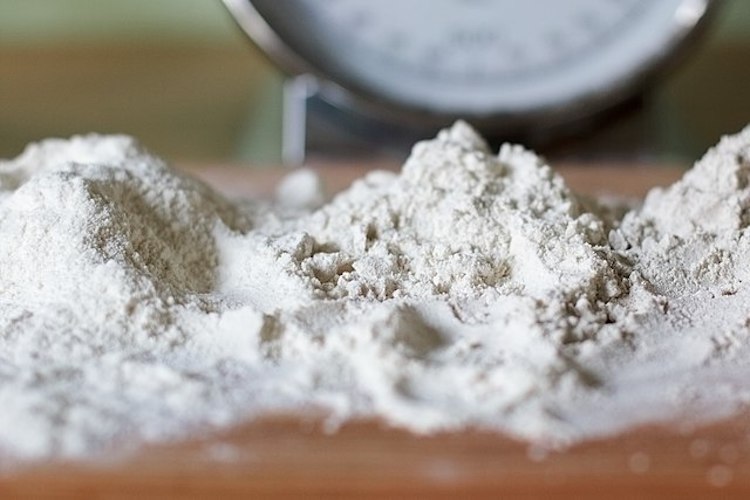
The primary characteristic of flour is its remarkable ability to absorb nearby substances, including various odors and moisture. Let’s not paint an unappetizing picture, but if you persist in storing flour in the refrigerator, you’ll likely end up with a malodorous, soggy mass.
This is certainly not ideal for making pancakes or any other baked goods. To preserve your flour’s quality, it’s best to store it in an airtight container within a dry environment, like a cupboard.
Bell Peppers
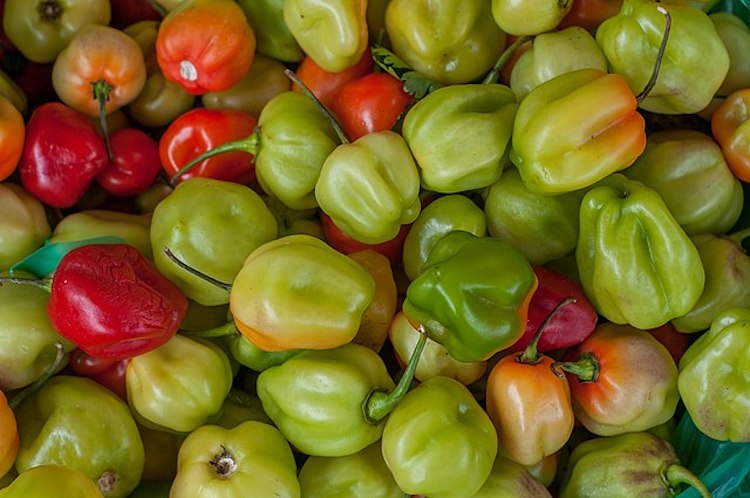
Until they’re cut, bell peppers don’t need to be refrigerated. They aren’t typically refrigerated in stores, and this practice doesn’t need to change when you bring them home. This is because the cold, dark environment of a refrigerator can actually diminish the flavor and vibrancy of peppers.
In fact, it might even lead to quicker spoilage compared to leaving them on your kitchen counter. However, it’s important to note that once you’ve cut your peppers, they should be stored in the refrigerator until you’re ready to use them.
Jam
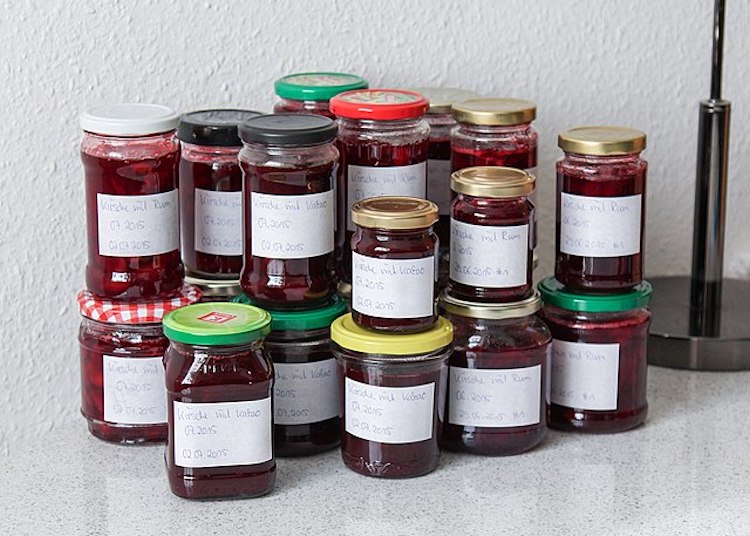
Jam is filled with its own natural preservatives. Since it is often packed with sugar, serving enhances both its flavor and extends its shelf life. Whether you have an unopened jar or one that’s been opened, you don’t need to store it in the refrigerator.
The preservation methods employed in jam production effectively safeguard its quality. Even after cracking open a jar of jam, you can leave it out of the fridge, unless you happen to have a low-sugar variety. In such cases, fewer preservatives are used, and it’s advisable to take extra precautions to ensure its freshness and safety.
Spices

Spices keep their flavor better when they’re somewhere dry and dark. Storing your spices in a moist environment, such as the refrigerator, serves no purpose when they’re not in use. In fact, it’s best to avoid refrigeration altogether.
These flavor enhancers can endure for years in your kitchen cabinets. To preserve their aromatic potency, ensure that your storage area remains dry and devoid of light, thus safeguarding the full richness of your spice collection.
Apples

When refrigerated, apples start to lose their nutritional goodness. To maintain the old adage “an apple a day keeps the doctor away,” it’s crucial to store your apples correctly, and the refrigerator might not be the best place for them.
Placing apples in a moisture-laden environment like a refrigerator can actually compromise their nutritional value, resulting in a less-than-appealing texture and an altered taste. To savor the best quality and flavor, it’s recommended to keep your apples away from the refrigerator altogether. Fresh and delicious apples are your ticket to health, and now you have the inside scoop.
Pears
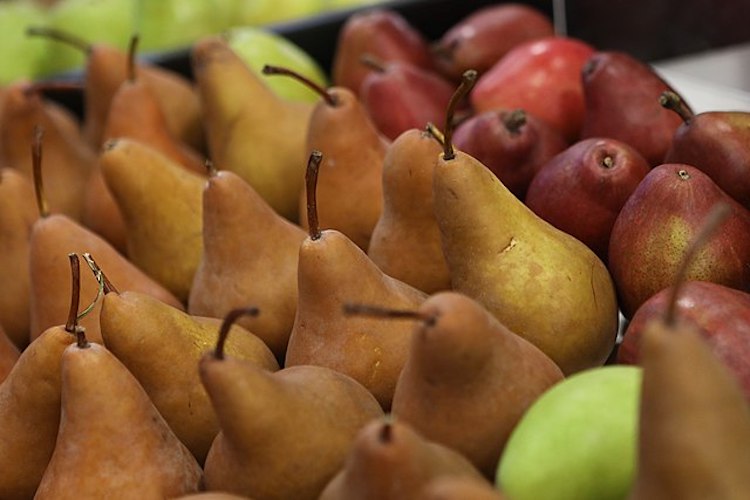
If you’re well-versed in the art of pear harvesting, the optimal time to pluck pears is when they are still unripe. Refrigerating unripe pears can thwart the ripening process, potentially leaving you with a batch of unappetizing, bitter, and rock-hard fruits that won’t satisfy your palate.
Naturally, if you’re concerned about the pears reaching their peak and want to preserve that perfection for later, you can safely store them in your refrigerator until your next hunger pang strikes.
Soy Sauce

Soy sauce is fermented, meaning it can preserve itself. The process of fermentation serves as a natural preservative for soy sauce, eliminating the need for refrigeration.
This means you can confidently store your soy sauce in the pantry for months, and in some cases, even years, without worrying about it losing its flavor, aroma, or texture.
Hot Sauce

Hot sauce doesn’t need the cold to remain fresh once opened. The refrigerator is not its ideal storage whether it’s a freshly unsealed bottle or one that’s been cracked open.
While the vibrant hue of your hot sauce might dull a bit if left in a cupboard, fear not, as it won’t alter its texture or flavor profile. So, rest assured, you’re good to go.
Eggplants
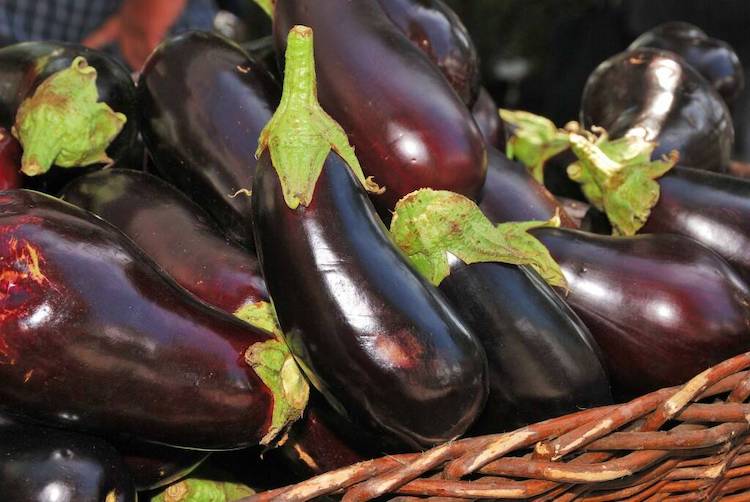
Eggplants don’t cope very well with extreme changes in temperature. The chilly environment slows down their ripening process, potentially resulting in an eggplant that appears and tastes somewhat lackluster.
To ensure your eggplant reaches its full potential, it’s wise to shield it from direct sunlight and keep it segregated from other fruits and vegetables. Eggplants seem to prefer solitude – a simple request for a tastier outcome.
Pineapple
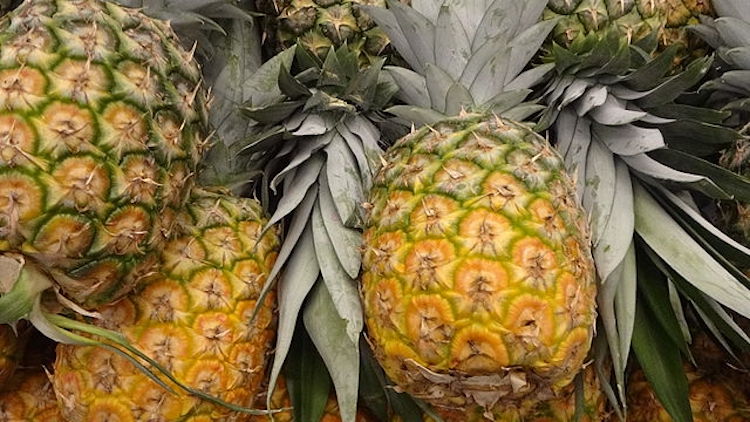
Pineapple doesn’t need to be refrigerated until it’s peeled and cut. Unlike fruits that require additional ripening time, a freshly picked pineapple doesn’t need any further maturation and is perfectly delectable right from the start. The ripening process remains fixed once the pineapple is in your possession.
Instead, you can proudly display your pineapple on your fruit bowl or kitchen countertop, readily available for your enjoyment. When you’re ready to savor this delicious fruit, go ahead and slice it up. Any remaining pieces can be securely stored in an airtight container in the refrigerator for later indulgence, ensuring they stay fresh and tasty.
Sweet Potatoes
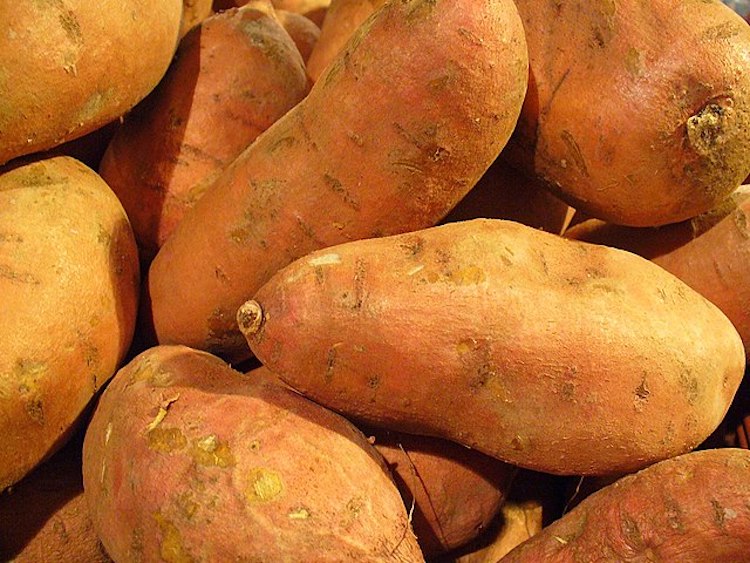
Sweet potatoes will often turn hard and bitter when kept in the fridge. The cold temperature and the moist environment of a fridge will actually cause damage to the cell membranes of a sweet potato, and this can leave it feeling hard and bitter.
As if that wasn’t bad enough, the hard potatoes will then be difficult to cut and take even longer to soften when you boil or cook them. To maintain the soft and sweet texture and taste of sweet potatoes, keep them in a cool and dry cupboard in something that allows for a lot of airflow.
Beans
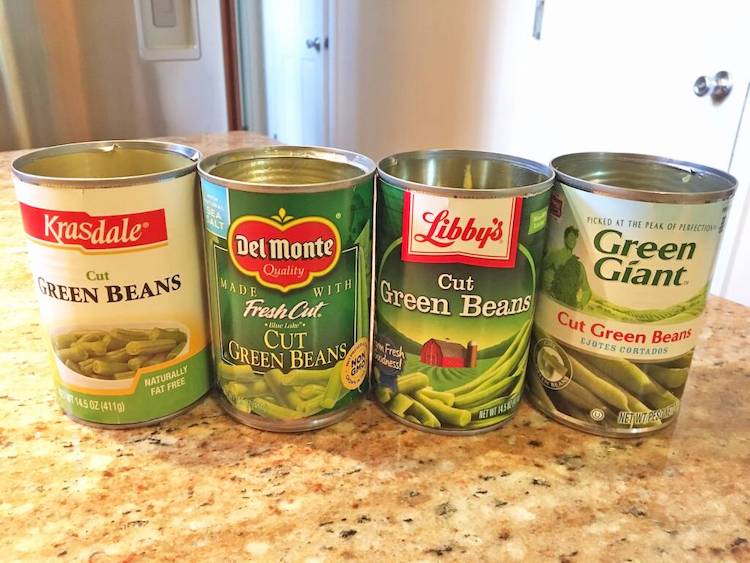
Every type of bean needs to be stored somewhere different. For canned beans and dehydrated beans, they don’t require refrigeration, as they’ve undergone preservation processes.
Conversely, for the vibrant freshness and flavor of green beans, refrigeration is essential. The key lies in identifying the type of beans you have to ensure they stay at their best.
Olives
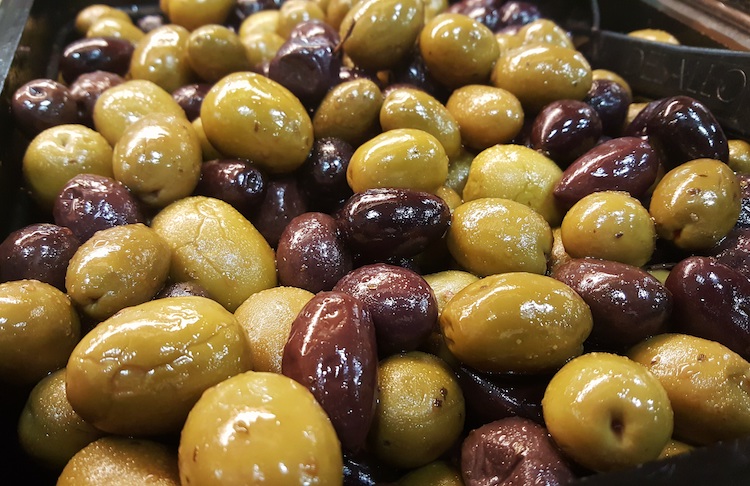
Olives can be one of the more confusing foods when it comes to storage. To clarify, canned olives are well-preserved and don’t necessitate refrigeration.
But once you’ve unsealed the can and indulged in some, it’s imperative to transfer the remaining olives to a sealed container, ideally with the juices from the can, and place them in the refrigerator for safekeeping. This straightforward distinction ensures your olives stay fresh and delicious.
Beef Jerky

Beef jerky has already been preserved and shouldn’t need any extra help, so it doesn’t require refrigeration. This unique product is cherished for its meticulous preparation, involving smoking, dehydration, salting, and curing. These processes not only contribute to its distinct flavor and texture but also grant it the ability to be stored differently compared to other meat products.
The preservation and textural transformation during its preparation allow beef jerky to remain unrefrigerated. Unlike other meats, there’s no necessity to expose it to cold or moist conditions. Instead, you can conveniently store beef jerky in a dry and cool cupboard. However, if you encounter unsalted jerky, it’s advisable to verify its storage requirements.
Yogurt
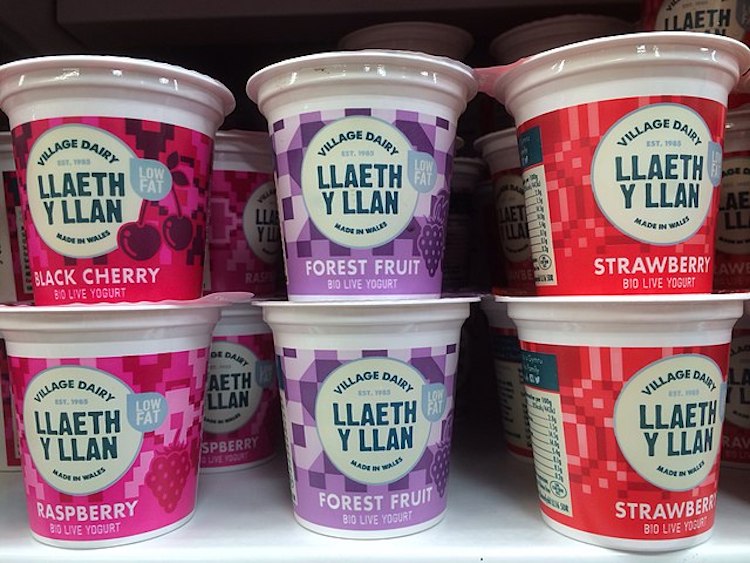
As long as it’s unopened and sealed, yogurt actually doesn’t have to be refrigerated. The reason behind this is that refrigeration serves as a barrier to bacterial growth, which isn’t a concern when dealing with yogurt.
You can safely store unopened yogurt in a pantry for several weeks without any issues. However, it’s crucial to transfer it to the refrigerator once opened; otherwise, bacterial proliferation can spiral out of control, posing potential health risks.
Butter
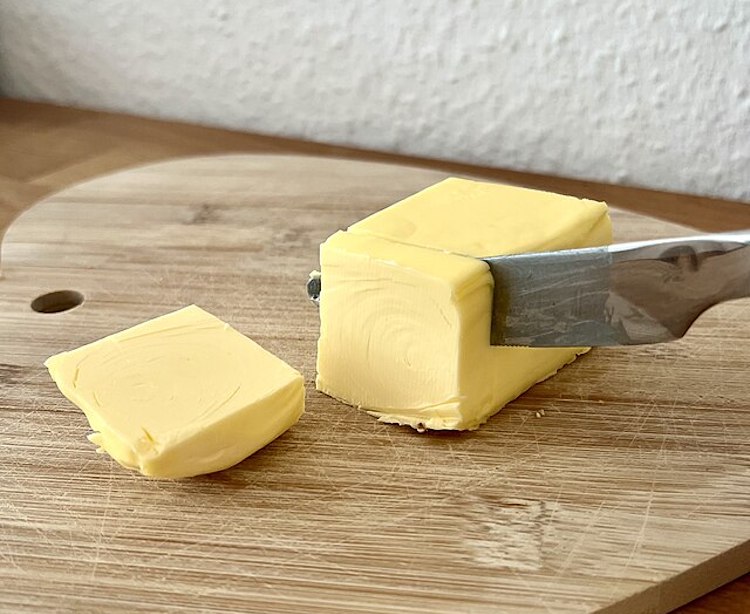
Butter can be stored in various places, depending on the type. For salted butter, the salt in the product automatically preserves it, meaning you don’t have to worry about putting it in the fridge.
If you buy unsalted butter, you can keep it out of the refrigerator for around a week, but any longer and you’ll need to move it to the fridge.
Potato Chips

Should you decide to experiment by placing potato chips in the fridge, you’re likely to discover that the moist environment within can render them stale and unpleasantly soggy. This is far from an ideal outcome.
Thanks to their salt content and airtight packaging, potato chips can maintain their quality for months before you break the seal. Once opened, consider employing a food clip to minimize exposure to air, helping to extend their shelf life.
Crackers

Storing crackers in a damp refrigerator is not a wise choice, as they readily absorb the moisture in the surrounding air, leading to a loss of flavor and texture.
If circumstances demand that you remove your crackers from their original packaging, be sure to secure them in an airtight container to maintain their freshness and protect them from any potential harm.
UHT Milk
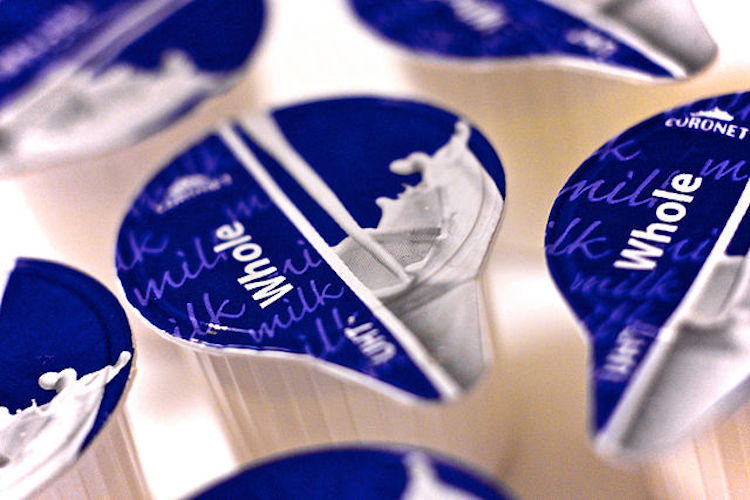
UHT milk, ultra-high-temperature milk, can last for months without ever being refrigerated. It undergoes an exceptionally rigorous pasteurization method employing significantly elevated temperatures, making it different from conventional supermarket milk.
Thanks to this stringent process, UHT milk is purged of bacteria, significantly extending its shelf life and reducing the risk of spoilage. Remarkably, UHT milk can remain unrefrigerated for months, safely stored in a cool, dry pantry. But once you’ve cracked open the carton, it’s advisable to keep it in the refrigerator to preserve its desirable chilled freshness.
Molasses
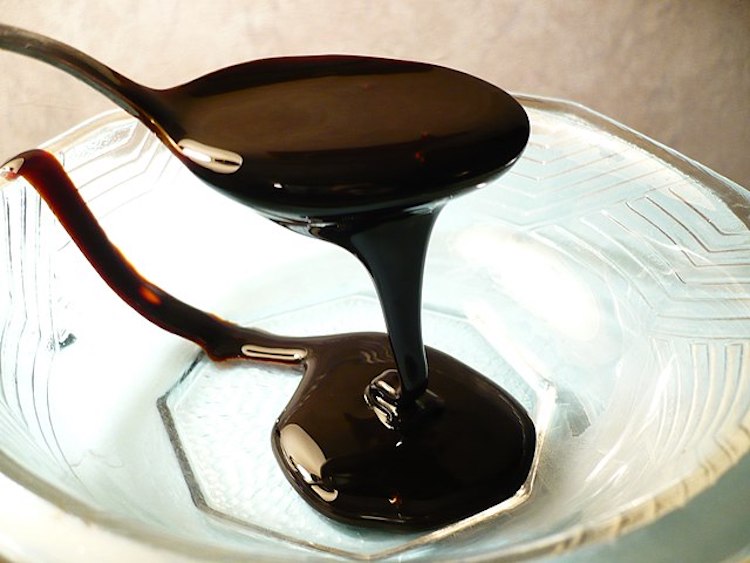
Despite its unappealing appearance and thick consistency, this sweetener proves delicious when employed judiciously, and the best part is it won’t occupy valuable space in your fridge as it will naturally preserve itself outside of the fridge.
The reason behind this nonchalance towards refrigeration is its remarkably high sugar content, which effectively fends off bacterial growth. With no necessity for cold storage or a moist environment, simply stow it away in your pantry until the moment you embark on a culinary adventure in your kitchen.
Certain Fruits
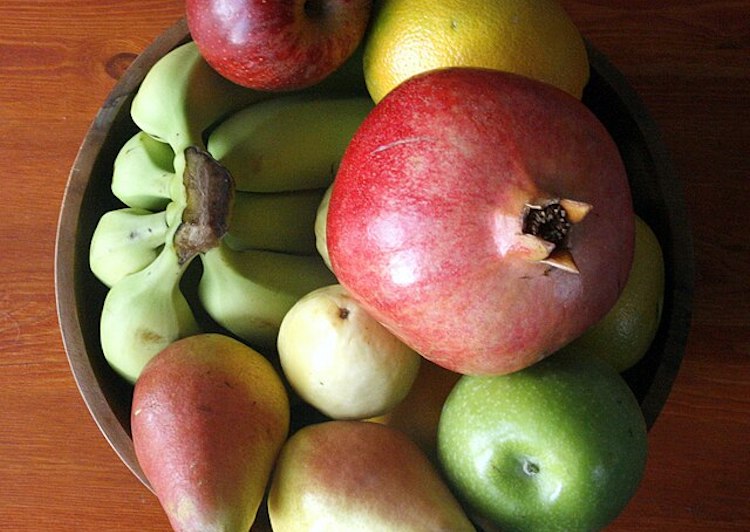
Certain fruits will lose any goodness and taste when refrigerated. Refrigeration can be detrimental to these fruits as the cold temperatures may harm the integrity of their cell membranes, ultimately compromising their nutritional content and leading to spoilage.
To maximize the shelf life of these fruits, it is advisable to store them in a location with natural sunlight and at room temperature, such as within a fruit bowl.
Nuts And Dried Fruits
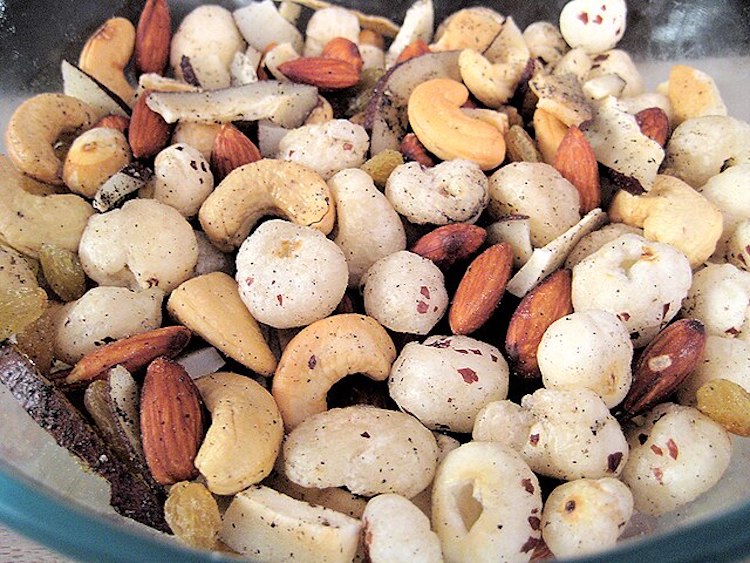
Nuts and dried fruits don’t need added layers of preservation. As they are often roasted or salted, this already acts as a preservation process. The same can be said for dried fruit when they are dried and dehydrated.
This means that you don’t have to add any more preservation into the mix, because they’re already perfect and ready to go. Simply keep them in an airtight container instead.
Peanuts
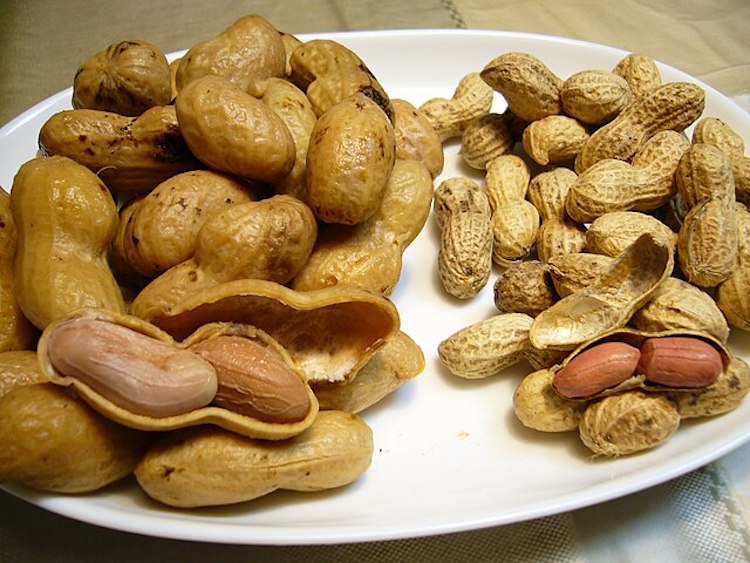
It’s all too easy to find yourself devouring an entire bag of peanuts, but should you later store them – don’t even think about the fridge, as they will spoil faster there.
To ensure they remain as fresh as possible, store them in an airtight container in a dark, dry cupboard. This method will help maintain their delectable freshness for longer periods.
Papaya
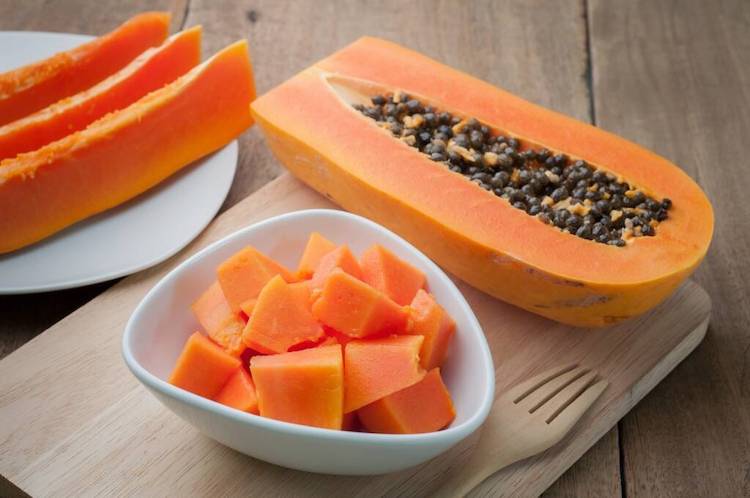
Papaya ripens better and more evenly on the countertop. The key to enjoying its deliciousness is to take charge of its ripening process at home, and the most effective approach involves keeping it far from the refrigerator.
Simply set your papaya on your kitchen countertop, allowing it to ripen naturally. All that’s required is an occasional turning to ensure uniform ripening, ensuring you savor its full flavor potential. Remember, refrigeration hinders the ripening of fruits, so avoiding the consumption of an unripe papaya is essential for a delightful culinary experience.
Popcorn

Popcorn won’t pop as well when it’s kept somewhere too cold. Yes, there are people who actually store their popcorn in the fridge. It’s a peculiar choice, considering that the appeal of cold popcorn remains a mystery to us.
Actually, the frigid temperatures in the refrigerator can hinder the popping process, resulting in either tiny, unsatisfying popcorn or stubborn kernels that refuse to pop altogether. To enjoy perfectly popped popcorn, it’s best to store your kernels in an airtight container at room temperature.
